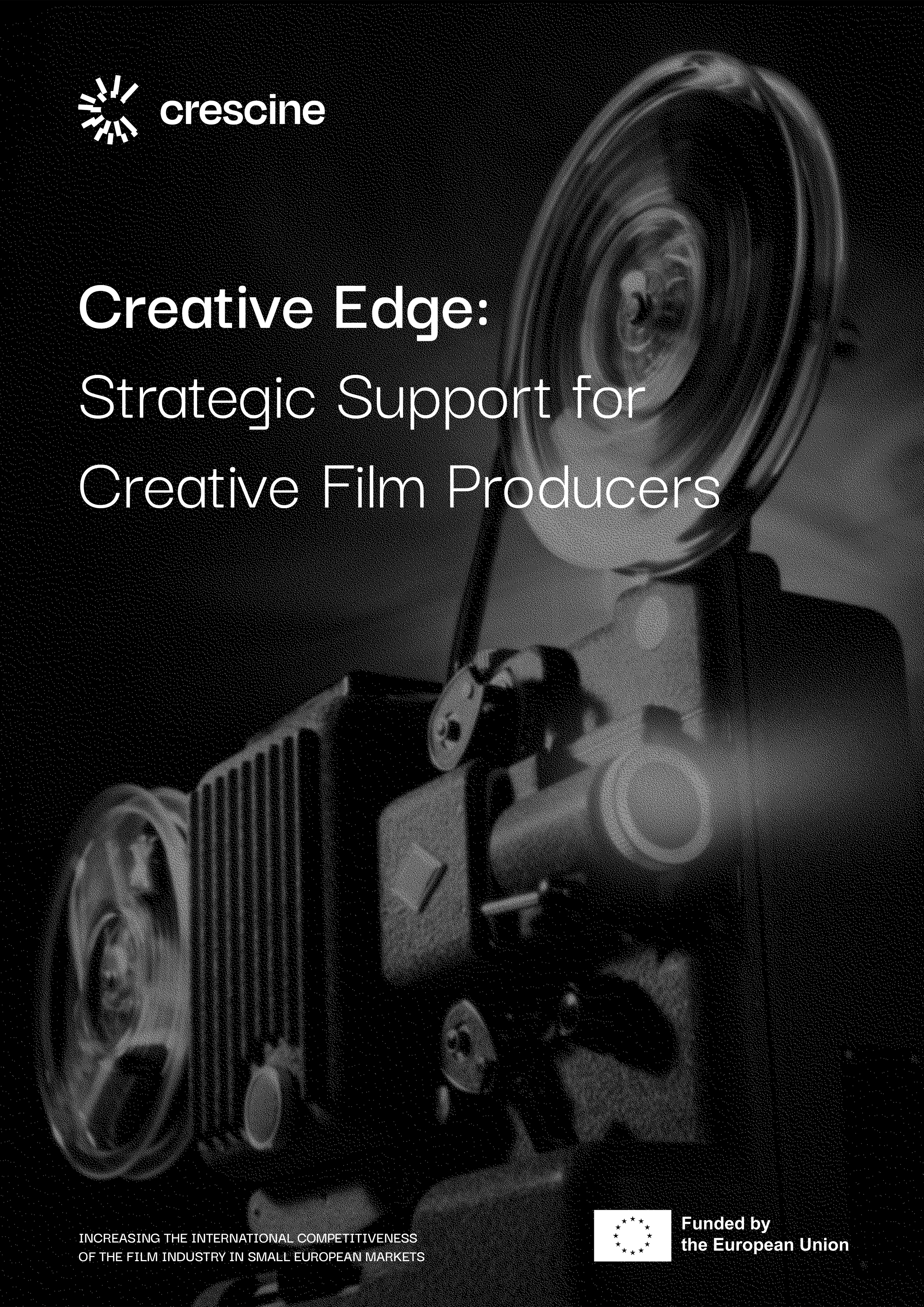INCREASING THE INTERNATIONAL COMPETITIVENESS OF THE FILM INDUSTRY IN SMALL EUROPEAN MARKETS
CresCine

Project Summary
CRESCINE is a Horizon Europe-funded initiative aimed at enhancing the competitiveness and cultural diversity of the European film industry, particularly focusing on small markets. The project involves original research and pilot programs in countries including Estonia, Lithuania, Denmark, Ireland, Belgium (Flanders), Croatia, and Portugal.
The project operates from March 2023 to February 2026 and is coordinated by Universidade Lusófona in Portugal. The consortium comprises 18 partners and 10 associate partners from across Europe, including academic institutions, industry stakeholders, and cultural organizations. The total budget for the CRESCINE project is approximately €4.4 million, funded by the European Union through the Horizon Europe program.
CRESCINE's mission is to increase the international competitiveness of the film industry in small European markets and improve the circulation of films and audiovisual content from these regions. The project addresses the entire film production, distribution, and consumption ecosystem, aiming to innovate at all levels of the value chain—from policy development to data management, production business models, and distribution methods.
CORDIS
The project is structured into eight interconnected work programs (WPs):
Project Management (WP1): Ensures the project's smooth execution within the specified timeframe and budget, managing administration and facilitating effective communication among consortium members.
The FIDA Pool (WP2): Collects and integrates data from various European film industry databases, offering insights into industry dynamics and developing a user-friendly web application for data visualization.
Small Film Markets: Comparative and Cross-sectional Perspectives (WP3): Provides a conceptual framework to understand the challenges of small film markets through multi-level comparative analysis, enhancing comprehension of competition dynamics.
Innovations: IPR, Finance, Business Models (WP4): Investigates innovation systems within small EU territories, focusing on green strategies, intellectual property rights management, and novel financing and business models.
Talents, Production, and Funding Ecosystems (WP5): Examines film production, financing, and training ecosystems in small European nations, identifying barriers to talent development and proposing measures to overcome them.
Platforms, Distribution, Exhibition, and Promotion (WP6): Develops strategies to strengthen distribution, exhibition, and marketing sub-sectors, enhancing the international reach of content from small EU markets.
Audiences & Diversity (WP7): Explores European film audiences' preferences and access barriers, designing strategies to engage diverse audience groups and support innovative business models.
CoDisEx and Impact Assessment (WP8): Disseminates project outcomes, builds a community around the future of the European audiovisual industry, and establishes platforms offering data, insights, and case studies.
By focusing on these areas, CRESCINE aims to transform small European film markets, fostering innovation and collaboration to strengthen the overall European film industry's global position.
CRESCINE
For more detailed information, you can visit the official CRESCINE website here.
The project's deliverables and insights can be found here.
Project Partners
Here are some of the key partners involved in the project:
Universidade Lusófona (Portugal): Serving as the project coordinator, this university leads the consortium's efforts.
Tallinn University (Estonia): A modern hub for film, media, and arts education and research.
Institute for Development and International Relations (IRMO) (Croatia): Focuses on interdisciplinary cultural research and policy studies.
Munster Technological University (MTU) (Ireland): Represented by the Hincks Centre for Entrepreneurship Excellence, contributing to research and innovation aspects of the project.
Filmby Aarhus (Denmark): Engages in industry development and innovation within the film sector.
Dún Laoghaire Institute of Art, Design and Technology (IADT) (Ireland): Home to Ireland’s National Film School, contributing expertise in film education and production.
Pimedate Ööde Filmifestival (POFF) (Estonia): Organizes the Tallinn Black Nights Film Festival, bringing insights into film exhibition and audience engagement.
Aarhus University (Denmark): Through its Department of Media Studies and Journalism, it contributes academic research and analysis.
FilmEU Alliance: An alliance of European universities for film and media arts, including Lusófona University, IADT, and Tallinn University, working collaboratively within the project.
European Film Academy: The European Film Academy seeks to support and connect its 4,600 members and celebrates and promotes their work.
Baltic Film & Creative Tech Cluster: Baltic Film & Creative Tech Cluster is a leading creative industries cluster based in Lithuania.
This consortium brings together a wide range of expertise and perspectives, aiming to enhance the competitiveness and cultural diversity of the European film industry, particularly in small markets.
For a complete list of partners and more detailed information, you can visit the official CRESCINE website's consortium page.
Project News
CresCine Research Conference and Launch of State of European Film Volume 3
Podcast - Could Entrepreneurial Thinking Be the Missing Piece in Producer Training?
Rethinking Producer Training: The Hincks Centre at REBOOT 2025
FREE Online Workshop for Film Producers
Crescine Pilot Producer's Workshop in Cork.
Project Newsletters
CresCine Dossier: Berlinale Breakdown on European Film Innovation Charts
CresCine's Easter Eggs: Must-read Industry Bits from SXSW and More!
CresCine & Nostradamus Team Up for Cannes!
CresCine goes to Cannes and the Croisette!
Post-Cannes Highlights & Summer News from CresCine!
The Small European Film Markets: Portraits and Comparisons Report Breakdown is Here!
Export dynamics in cinema and VOD! Small Film Markets Report Part 2
Strategic Support for Creative Film Producers Handbook
The Strategic Support for Creative Film Producers Handbook is a practical handbook designed to help trainers, mentors, and film labs support producers through structured, evidence-based methods. Drawing on entrepreneurship research and tailored for the realities of independent filmmaking, the guide introduces tools for clarifying project goals, testing key assumptions, and building sustainable implementation habits.
By strengthening strategic decision-making at early stages of development, the handbook supports stronger projects, more resilient producers, and more competitive film industries.
Download the handbook by clicking the image below.




